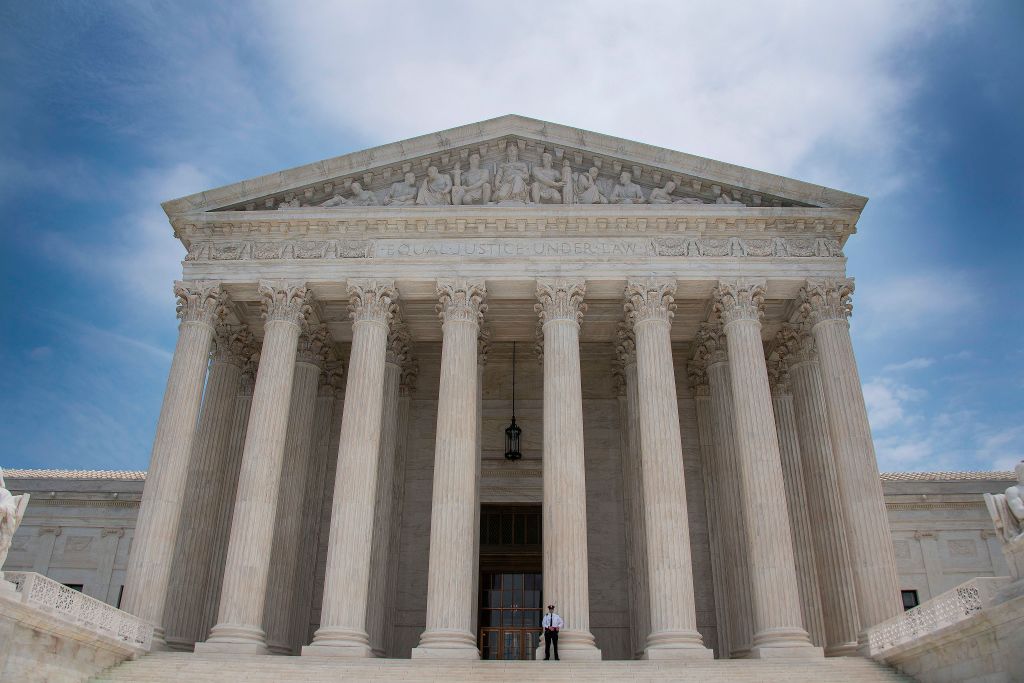
May 16, 2024
Supreme Court Rules In Favor Of Louisiana’s Congressional Map With Second Majority Black District
The High Court sided with a bipartisan group of GOP state officials and civil rights groups who joined forces.
After years of debate, the Supreme Court granted Louisiana permission to use a congressional map that includes two majority-Black districts in the 2024 election.
The High Court sided with a bipartisan group of GOP state officials and civil rights groups who joined forces to ask the court to block a ruling by a lower court that invalidated the most recently drawn map. State officials mentioned they needed to have the map finalized by May 15 in order to meet bureaucratic deadlines and avoid “disarray.”
With a 6-3 conservative majority, three liberal justices dissented, including Justice Ketanji Brown Jackson, who wrote that the state had more time to draw a map addressing some of the legality issues and concerns raised. “There is little risk of voter confusion from a new map being imposed this far out from the November election,” Jackson wrote.
In previous cases, the liberal justices objected when the court moved to block changes to district maps or election laws during an election year, sometimes to favor Republicans. However, the reasoning of the recent decision was not explained.
Discussion surrounding Louisiana’s congressional map has been tangled in intense litigation since 2022 when the first draft was met with accusations of racial gerrymandering. With the original map, Republicans won five of the six districts during the 2022 election season. In the same year, according to NPR, a federal district court ruled that the new map drawn by the state legislature violated the Voting Rights Act by eliminating the Black vote.
Louisiana has six congressional seats, a 31.4% Black population, and only one district was majority Black. In the summer of 2023, the map was redrawn after the Supreme Court enacted the federal Voting Rights Act, touching on similar circumstances in Alabama, where the state’s congressional map discriminated against Black voters.
Legal experts highlighted how this ruling applies to the Purcell rule—where justices said that courts should not interfere with election rules and procedures too close to an upcoming election—benefiting Democrats since it is likely that Louisiana’s second majority-Black district will elect a Democrat, adding one blue seat in the U.S. House of Representatives.
But advocates, like redistricting fellow for the Legal Defense Fund, Sara Rohani, are celebrating the high court’s ruling. “Today’s Supreme Court action ensures that Black voters’ voices will not be silenced during this year’s critical elections,” Rohani said.
“The Voting Rights Act requires Louisiana to have a map where Black voters have a fair opportunity to elect candidates of choice. While this is not the end of our work to defend that principle, it is a critical moment in our fight for fair maps in Louisiana and reflects the strength of our democracy.”
RELATED CONTENT: Georgia’s SB 189 Elicits Furious Response From Voting Rights Advocates